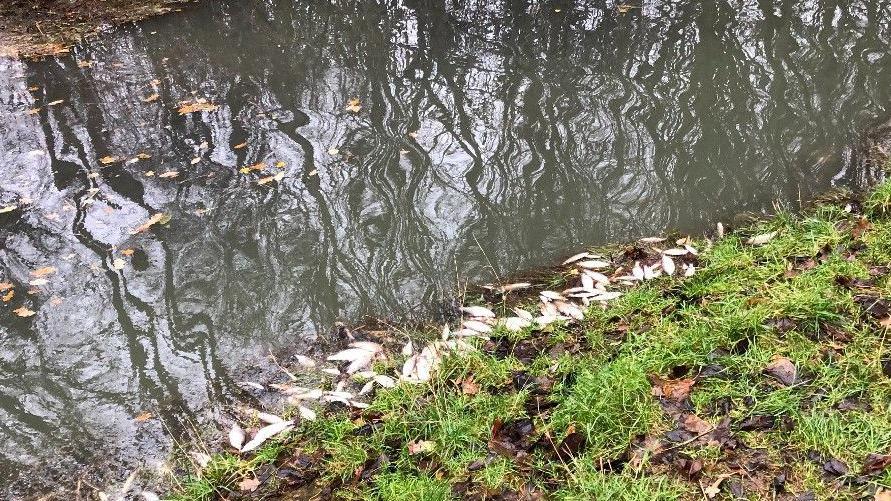Pollution that killed 100,000 fish still a mystery
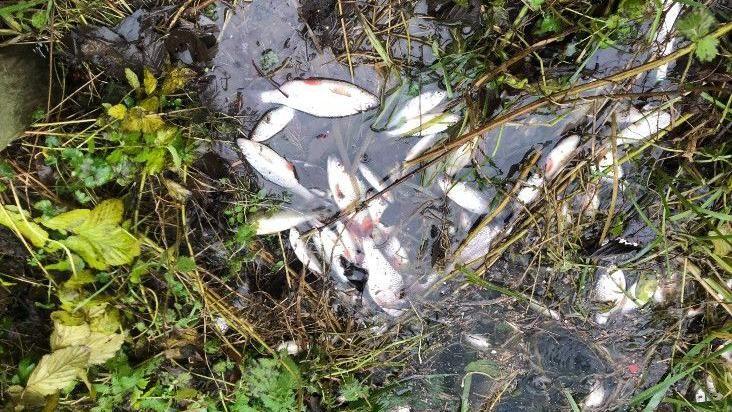
Sewage was quickly ruled out as a cause for the fish deaths
At a glance
Fish were found dead on the riverbank near Peterborough in December
Investigators said the pollutant passed through the water too quickly to be traced
Surveys of the fish population will continue and the river could be restocked
- Published
The mystery of what caused 100,000 fish to die in the River Nene near Peterborough last month will go unsolved after an investigation drew a blank.
Fish were found washed up on the riverbank between Orton Backwater and Goldie Backwater, and at Ferry Meadows park, on 12 December.
The Environment Agency tried to establish the contaminant, after sewage was ruled out.
"We believe that the pollutant that had such a significant impact on the fish passed through in a short period of time and so we were unable to trace the source," it said.
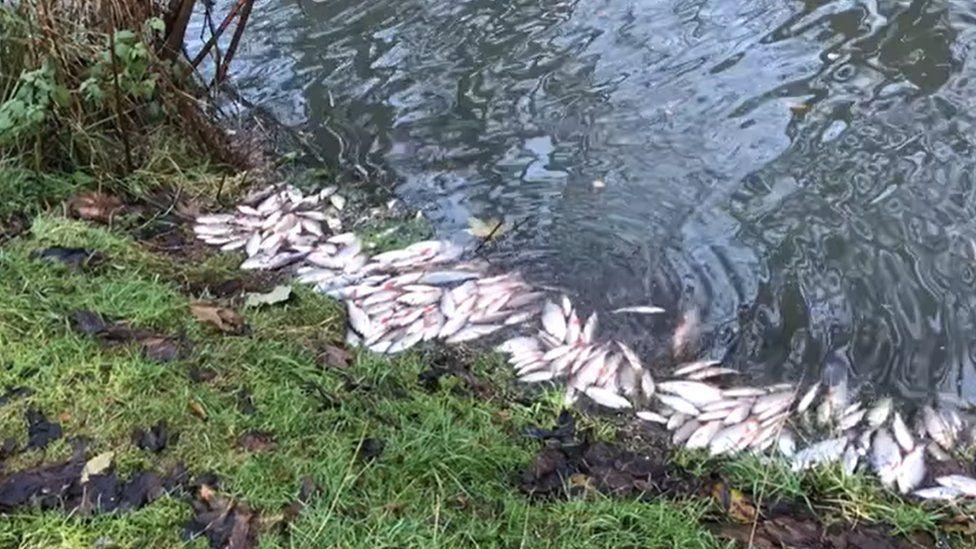
Dead fish were spotted on the water's edge on both sides of the river
It said its officers had spent many hours over the past few weeks taking samples and visiting a large number of locations.
“Our investigations did not uncover any further damage and we are now observing normal fish behaviour," a spokesman added.
“We are planning to conduct fish population surveys to establish the status of fish stocks, which will determine the need to potentially restock parts of the river.”
At the time, Chris Park, of the Nene Park Trust, which runs Ferry Meadows, said the sight of the washed-up bodies was "sickening".
The trust feared the death of the fish could have a "devastating impact on future breeding".
The agency said it had fast-tracked samples of the river amid efforts to establish the cause.
Follow East of England news on Facebook, external, Instagram, external and X, external. Got a story? Email eastofenglandnews@bbc.co.uk, external or WhatsApp us on 0800 169 1830
Related topics
- Published6 January 2024
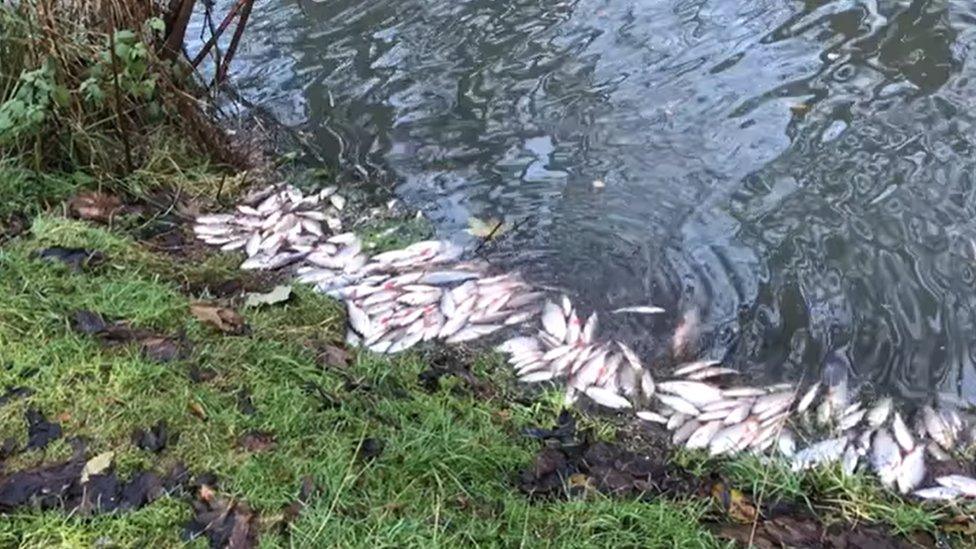
- Published14 December 2023
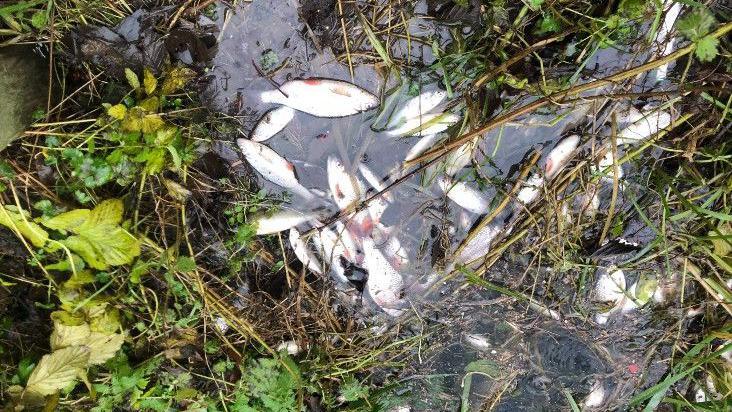
- Published16 December 2023
